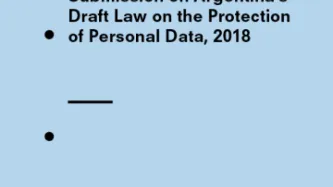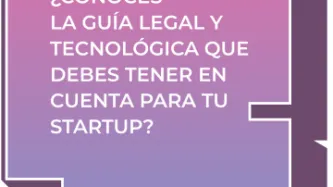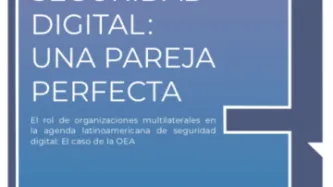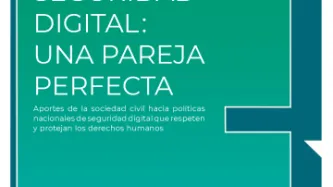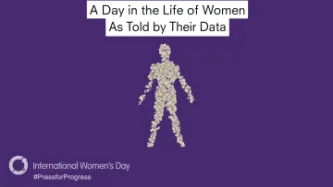Search
Content type: Advocacy
In September 2018, the National Executive sent the proposed Data Protection Bill to the National Congress. The proposed law was directed to the Senate and it will be considered by two commissions: the Commission of Constitutional Affairs (Comision de Asuntos Constitucionales) and the Commission of Rights and Guarantees (Comision de Derechos y Garantías).
Privacy International welcomes the continued efforts by Argentina to provide protections for the right to privacy, already enshrined in the…
Content type: News & Analysis
Creative Commons Photo Credit: Source
In September 2018, a month after Argentina lawmakers voted against the legalisation of abortion, we spoke to Eduardo Ferreyra from the Buenos Aires-based Asociacion por los Derechos Civiles about the role of privacy in the abortion debate. Also joining us in this second episode of the Gender and Privacy Series is Ambika Tandon from the Centre for Internet and Society in India to discuss the intersection between privacy and bodily autonomy.…
Content type: Examples
For many Filipinos, Facebook is their only way online because subsidies have kept it free to use on mobile phones since its launch in the country in 2013, while the open web is expensive to access. The social media network is believed to have been an important engine behind the ascent to the presidency of Rodrigo Duterte. Beginning in 2016, faked photographs and videos spread alongside false news targeting Senator Leila de Lima, a noted critic of Duterte and his violent war on drugs, and others…
Content type: News & Analysis
Image attribution: By Blue Diamond Gallery CC BY-SA 3.0.
In March 2017, when the UN Human Rights Council requested the High Commissioner for Human Rights to prepare a report on the right to privacy in the digital age, including the responsibility of business enterprises, Cambridge Analytica was an obscure company among others. A year later the data exploitation scandal erupted, leading to plenty of soul searching by politicians in US, UK, Europe and elsewhere, pledges of…
Content type: News & Analysis
Actualmente, las empresas tecnológicas se encuentran inmersas en constante cambio. Uno de ellos es la creciente importancia que ha cobrado la seguridad digital, convirtiéndose en una prioridad. Que un emprendimiento resguarde su seguridad digital significa que puede gestionar los riesgos asociados a mantener la confidencialidad, integridad y disponibilidad de su información.
En este contexto, resulta de gran relevancia que las personas responsables del emprendimiento digital y el…
Content type: News & Analysis
El objetivo es facilitar a la sociedad civil una guía para la navegación de este organismo, efectuar un diagnóstico que permita situar cualquier persona interesada sobre la actualidad de la temática a nivel regional y descubrir la agenda de seguridad digital que sostiene la OEA en el continente.
Finalmente, concluimos con una serie de breves recomendaciones dirigidas a los organismos de la OEA. Con ello, esperamos que este órgano reconozca el papel que puede jugar como catalizador en el…
Content type: Examples
In March 2016, a hacker group identifying itself as Anonymous Philippines defaced the website of the Philippine Commission on the Elections (Comelec), leaving a message that accused Comelec of not doing enough to secure the voting machines due to be used in the general election the following month. That same day, LulzSec Piliphinas, a different but related hacker group, posted online a link to a 338GB database it claimed was the entire electoral register of 54.36 million Filipinos. Trend Micro…
Content type: Report
La seguridad digital es una discusión crítica y hay que reconocer que la sociedad civil y los grupos de interés público no han sido suficientemente considerados. Como respuesta, varias organizaciones de la sociedad civil de América Latina se unieron para presentar informes que recuerdan a las entidades estatales responsables de formulación de políticas públicas que la seguridad digital debe tener en cuenta la seguridad de las personas y los derechos humanos. Presentamos la serie, Derechos…
Content type: Long Read
To mark International Women’s Day 2018, Privacy International and some of our partner organisations - Datos Protegidos, Derechos Digitales, the National Coalition for Human Rights Defenders-Kenya, the Karisma Foundation, and the Foundation for Media Alternatives – are telling the stories of women across the world as told by their data over the next seven days (for us, it’s International Women’s Week!).
Gender inequality has many complex dimensions and data exploitation is yet another.…
Content type: News & Analysis
Written by the Foundation for Media Alternatives
7:01: Naomi wakes up and gets ready for the day.
7:58: Naomi books an Uber ride to Bonifacio Global City (BGC), where she has a meeting. She pays with her credit card. While Naomi is waiting for her Uber, she googles restaurant options for her dinner meeting in Ortigas.
9:00: While her Uber ride is stuck in traffic on EDSA (a limited access highway circling Manilla), Naomi’s phone automatically connects to the free WiFi offered by the…
Content type: Long Read
To celebrate Data Privacy Week, we spent the week discussing privacy and issues related to control, data protection, surveillance, and identity. Join the conversation on Twitter using #dataprivacyweek.
Do you live in a “smart city”? Chances are, you probably do (or at least your city claims to be). But do you know what exactly makes your city “smart”, beyond the marketing term? And what does this have to do with privacy?
Companies and governments will tell you that the more cameras, sensors…
Content type: Long Read
To celebrate International Data Privacy Day (28 January), PI and its International Network have shared a full week of stories and research, exploring how countries are addressing data governance in light of innovations in technology and policy, and implications for the security and privacy of individuals.
According to the World Bank, identity “provides a foundation for other rights and gives a voice to the voiceless”. The UN Deputy Secretary-General has called it a tool for “advancing…
